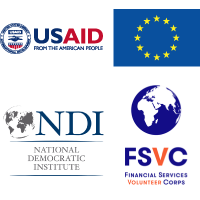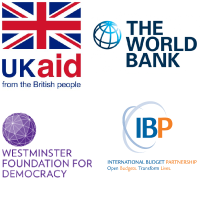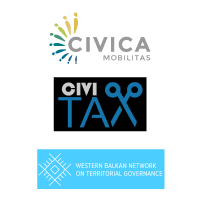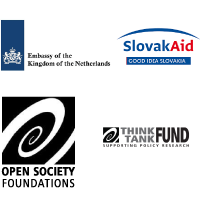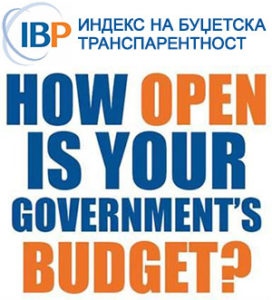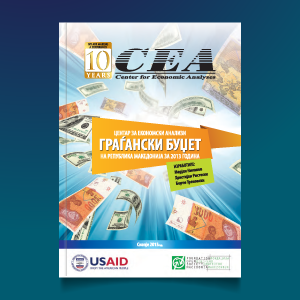CEA is implementing a one-year project supported by the Open Society Foundations with the aim of assessing and streamlining the potential of the Initiative Open Balkan.
BACKGROUND
Recognising the lack of interest of the EU in enlargement in the Western Balkans, Serbian President Aleksandar Vučić, North Macedonian Prime Minister Zoran Zaev, and Albanian Prime Minister Edi Rama decided to “take destiny in their own hands” and launch a “mini-Schengen” in October 2019. In July 2021, this idea evolved into a regional initiative “Open Balkan[1]”. The initiative is no substitute for membership in the EU, but a path to accelerated membership and utilization of the existing but insufficiently used potentials in these countries, which might facilitate additional economic growth and development and thus, welfare for their citizens.
CHALLENGES TO KEEP THE MOMENTUM
Developing and cultivating neighbourly relations in the Western Balkan in expectation of economic prosperity will require eliminating border controls and other barriers in order to facilitate the movement of people, goods and services, and capital in the region. Regional disparities analyses (for example, coastal vs. internal, NUTS 2 and NUTS 3 regions, urban vs. rural, capital cities vs. other cities) of the Open Balkan countries might offer insights when determining priorities for more accelerated growth and internal convergence of the Open Balkan region. At the moment, there is a lack of properly elaborated analyses to assess the existing challenges.
[1] By Open Balkan, we will define the territorial space of six countries: Bosnia and Herzegovina, Serbia, Montenegro, North Macedonia, Kosovo, and Albania.
ACTIVITIES OF THE PROJECT
An independent pool of experts from the six countries diagnosing and investigating the bottlenecks for cooperation and coordination among the Open Balkan countries will add value to the already demonstrated political will for the Open Balkan initiative, leading to its more structured, priority-focused, and systematic development.
Project Outputs and activities:
Rapid analyses:
1) OPEN BALKAN, BERLIN PROCESS AND EU’S ACQUIS: Rapid analysis within the assessing and streamlining potentials of the Open Balkan Initiative
2) ECONOMIC EFFECTS OF THE OPEN BALKAN INITIATIVE: Rapid analysis within the assessing and streamlining potentials of the Open Balkan Initiative
Studies and analyses – country & regional:
TASK 1): SCREENING OF THE OPEN BALKAN INITIATIVE – COUNTRY ANALYSES MK, SR, ALB
Executive Summary ENG
TASK 2):
Volume 1: Country disparity analyses: Desk research ENG
Volume 3: Country disparity analyses: Cluster analysis ENG + Cluster analysis Maps
Executive Summary ENG
Peer Review and editor letter Task 1 & Task 2
TASK 3):
TASK 4):
ENG: WESTERN BALKAN ECONOMIC FORECASTS: OPEN BALKAN AND BERLIN PROCESS
MK: ЕКОНОМСКИ ПРОЕКЦИИ ЗА ЗАПАДЕН БАЛКАН: ОТВОРЕН БАЛКАН И БЕРЛИНСКИ ПРОЦЕС
СРБ: ЕКОНОМСКЕ ПРОЈЕКЦИЈЕ ЗА ЗАПАДНИ БАЛКАН: ОТВОРЕНИ БАЛКАН И БЕРЛИНСКИ ПРОЦЕС
ALB: PROJEKSIONE EKONOMIKE PËR BALLKANIN PERËNDIMOR: BALLKANI I HAPUR DHE PROCESI I BERLINIT
Update Report on the OBI state of play, on adoption and ratification of the OBI agreements and MoUs
ENG: UPDATE ON THE IMPLEMENTATION OF THE OPEN BALKAN INITIATIVE – PARTICIPATING COUNTRIES
Rapid macro-forecast of the potential effects of the cohesion policies for North Macedonia
ENG: RAPID MACRO-FORECAST: POTENTIAL MACRO-EFFECTS OF COHESION POLICY – NORTH MACEDONIA
TASK 3) UPDATE:
Progress with narrowing the Administrative Gap for free access to labor market
ALB: PROGRESI NË ZVOGËLIMIN E HENDEKUT ADMINISTRATIV TË INICIATIVËS SË BALLKANIT TË HAPUR NË FUSHËN E AKSESIT TË LIRË NË TREGUN E PUNËS NË BALLKANIN PERËNDIMOR
Progress with narrowing the Administrative gap for free access to labor market – the Businesses’ View
MK: НАПРЕДОК ВО НАМАЛУВАЊЕТО НА АДМИНИСТРАТИВНИОТ ЈАЗ НА ИНИЦИЈАТИВАТА ОТВОРЕН
БАЛКАН ВО ОБЛАСТА НА СЛОБОДЕН ПРИСТАП ДО ПАЗАРОТ НА ТРУДОТ ВО ЗАПАДЕН БАЛКАН: СТАВОТ НА ДЕЛОВНАТА ЗАЕДНИЦА
SRB: НАПРЕДАК У СМАЊЕЊУ АДМИНИСТРАТИВНОГ ЈАЗА ИНИЦИЈАТИВЕ ,,ОТВОРЕНИ БАЛКАН” У ОБЛАСТИ СЛОБОДНОГ ПРИСТУПА ТРЖИШТУ РАДА ЗАПАДНОГ БАЛКАНА: СТАВ БИЗНИС ЗАЈЕДНИЦЕ
ALB: PROGRESI NË ZVOGËLIMIN E HENDEKUT ADMINISTRATIV TË INICIATIVËS SË BALLKANIT TË HAPUR NË FUSHËN E AKSESIT TË LIRË NË TREGUN E PUNËS NË BALLKANIN PERËNDIMOR: QËNDRIMI I KOMUNITETIT TË BIZNESIT





